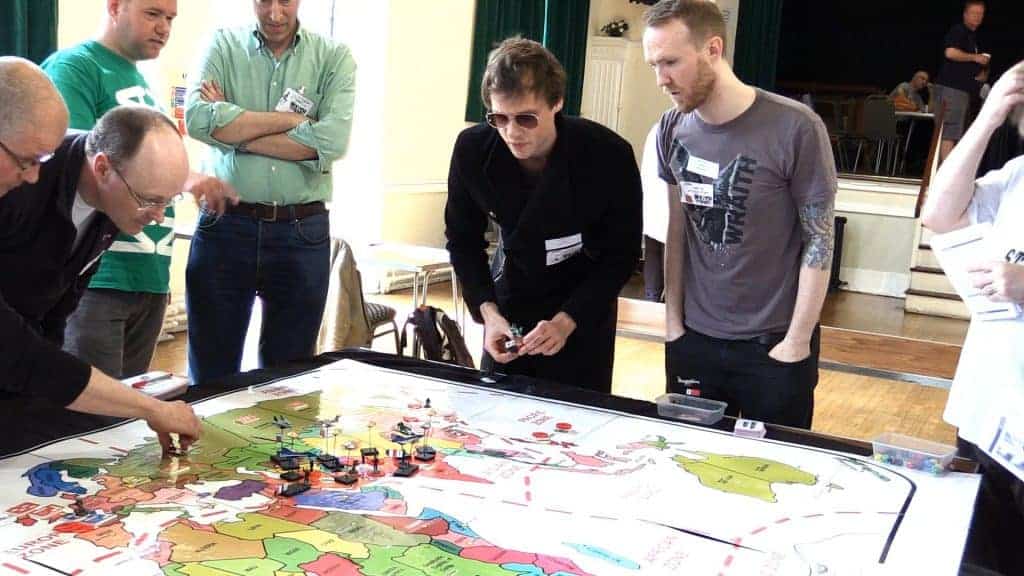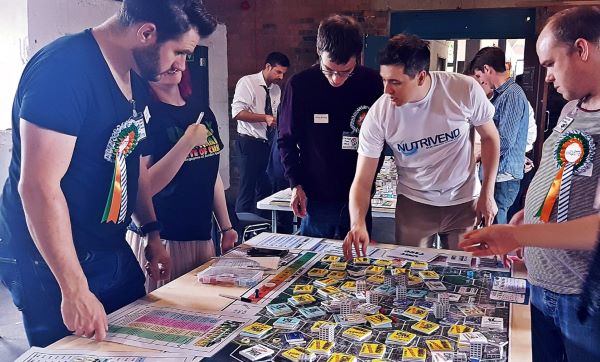I find one of the joys of playing Dungeons and Dragons is the emergent play. No-one around the table quite knows what is coming next. Even when you’re the one running the adventure. The games direction shifts and changes as the players make decisions. When looking at leadership development, traditional training methods rarely give students loived experiences to put their new found knowledge to the test. Emergent play, a concept drawn from the world of gaming, offers a fresh and effective approach to leadership training. By creating scenarios where players must adapt, innovate, and collaborate in real-time, emergent play provides a rich ground for developing critical leadership skills. This article explores how emergent play experiences can be leveraged to enhance leadership training.
Understanding Emergent Play
How do we define what emergent play actually is? As a concept it occurs when players engage with a game in ways that go beyond the designers’ intentions. It arises from the interactions within a complex system, where simple rules can lead to unpredictable and sophisticated behaviors. This type of play emphasizes creativity, problem-solving, and adaptability, as players navigate a world where their decisions have significant and often unforeseen consequences.
Roleplaying games are often considered the ultimate expression of emergent play. Players have an inordinate amount of flexibility to do almost anything. Each scenario can be approached from a hundred different angles. Obviously, as a designer, or dungeon master it is often a fruitless exercise trying to second guess what the players are going to do. I’ve learned this the hard way.
Another great example is the megagame. These complex games involve tens of players on multiple teams, with competing objectives. Information is often imperfect and players must interact, cooperate or compete (often all at the same time) to achieve their goals. This is ripe for emergent play, as narratives and directions of play spin directly from these player interactions.

Interestingly, games companies are beginning to pick up on this. I recently started playing Warhammer 40000, a sci-fi grimdark wargame, with my son. Flipping through the rulebook I was pleased to see a heavy emphasis on narrative play. A story emerges from the actions of the players. Perhaps not as complex as the other two examples, but a step in the right direction.
Why Emergent Play is Effective for Leadership Training
Now we understand a bit about what emergent play is, I hope you can see the why they might be good tools for enhancing leadership training.
- Realistic Complexity: Emergent play mirrors the complexities of real-world scenarios, where leaders must often deal with ambiguous and rapidly changing situations. This realistic complexity prepares leaders to think on their feet and adapt to unexpected challenges.
- Enhanced Engagement: Games designed for emergent play are inherently engaging. Consequently the unpredictable nature of these games keeps participants invested and motivated, leading to deeper learning experiences.
- Active Learning: Emergent play requires active participation, where learners must make decisions, interact with others, and see the outcomes of their actions. Using an active learning approach helps reinforce key leadership concepts and skills.
- Safe Environment for Experimentation: In an emergent play setting, participants can experiment with different strategies and approaches without the fear of real-world repercussions. Of course, this safe environment encourages risk-taking and innovation, essential traits for effective leadership.
Key Elements in Leadership Training
To create effective emergent play experiences for leadership training, I believe the follwing elements should be incorporated.
1. Open-Ended Scenarios
Design scenarios that are not constrained by a single solution or path. Open-ended scenarios allow participants to explore multiple strategies and outcomes, fostering creativity and critical thinking. For example, a leadership training game might simulate a company facing a market disruption, where participants can choose various ways to respond, such as innovating new products, pivoting their business model, or forming strategic partnerships. Or, if they are particularly ambitious, all three!
2. Dynamic Environments
Create environments that change based on participants’ actions and decisions. Dynamic environments mimic real-life situations where leaders must continuously adapt to new information and shifting conditions. Some ways to achieve this include, real-time updates, random events, and evolving challenges keeping participants on their toes. It can also help if the game rivals are controlled by players rather than game control.
3. Collaboration and Competition
Incorporate both collaborative and competitive elements to simulate the complexities of organizational dynamics. Encouraging teamwork helps develop collaboration and communication skills, while competitive aspects can drive strategic thinking and resilience. For instance, a game could involve teams working together to solve a crisis, but also competing for limited resources or recognition. This would create interesting friction and force thoughtful leadership decisions to be made.
4. Meaningful Consequences
Ensure that participants’ actions have meaningful and visible consequences. This helps reinforce the importance of decision-making and accountability. For example, if a team chooses to cut corners on a project, they might achieve short-term gains but face long-term setbacks such as reputational damage or reduced morale. This can be made tougher by including moral dilemmas into the fabric of the game. From games I’ve played these touch decisions with big consequences are often the most memorable. Ultimately, making them incredible learning opportunities.

Implementing Emergent Play in Leadership Training Programs
If you wanted to include emergent play into your leadership training there are a few things to consider.
1. Develop Customized Games
Design custom games tailored to your organization’s specific leadership challenges and goals. Simply re-skinning existing games to align with a new setting is a relatively straight forward exercise. Working with game designers from outside your organization can help you to create and modify game scenarios to fit your training objectives while removing some of your organizational assumptions.
2. Facilitate Reflective Debriefings
After gameplay, conduct debriefing sessions where participants can reflect on their experiences, discuss what they learned, and draw parallels to real-world leadership situations. Of course, this reflection helps solidify learning and translate game insights into practical skills. A good tip here would be to include a facilitator who observes the game and can take notes on what’s happening enabling even deeper reflection by the participants.
3. Encourage Continuous Learning
Use emergent play as part of an ongoing leadership development program rather than a one-time event. Regularly incorporating such experiences helps reinforce learning and allows leaders to practice and refine their skills over time.
4. Leverage Technology
Consider utilizing digital platforms and virtual environments to create scalable and accessible emergent play experiences. Technology can facilitate complex simulations and enable remote participation, making it easier to integrate emergent play into diverse training programs. This could allow games to be played across time zones adding further complexity to team interactions.
Some Ideas for Emergent Play in Leadership Training
Here are a couple of quick examples of the types of game you could include in your next training cohort.
“The Infinite Loop”
This collaborative game involves teams working together to escape a virtual time loop by solving puzzles and making strategic decisions. The game’s open-ended nature and evolving challenges make it an excellent tool for developing problem-solving, collaboration, and adaptability. Actions would have significant consequences every time the time loop resets. To pile on the pressure there are only a limited number of time loop iterations before the game finishes.
“Evolve”
A simulation game where participants lead a virtual organization through various crises and opportunities. Players are split into different departments, all with competing objectives. The team must make strategic decisions, manage resources, and navigate complex interpersonal dynamics. Of course, the game’s dynamic environment and meaningful consequences would provide a realistic and engaging leadership training experience. To add to the pressure and complexity, a second group of players could be set up as a rival organization. Will the disparate teams come together under a common cause?
Final Thoughts
Emergent play offers a powerful and innovative approach to leadership training, by providing engaging, and impactful learning experiences. By incorporating open-ended scenarios, dynamic environments, collaboration, competition, and meaningful consequences, emergent play prepares leaders to navigate the complexities of the modern world. As organizations continue to seek effective ways to develop their leaders, emergent play stands out as a promising method for fostering the skills and mindsets needed for success.



